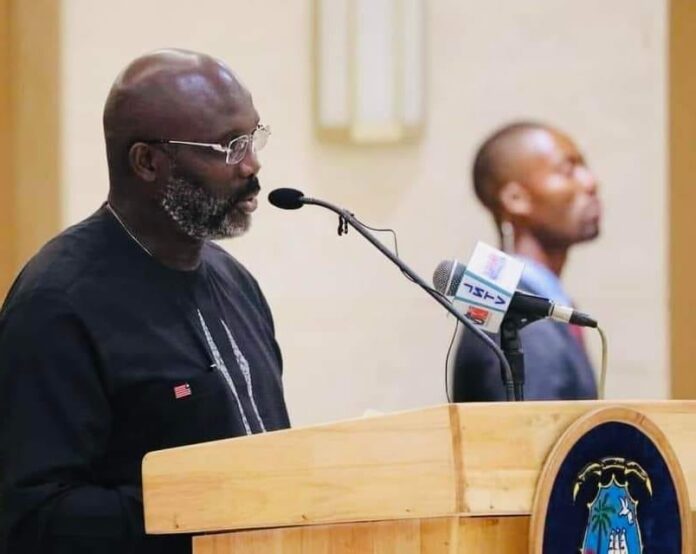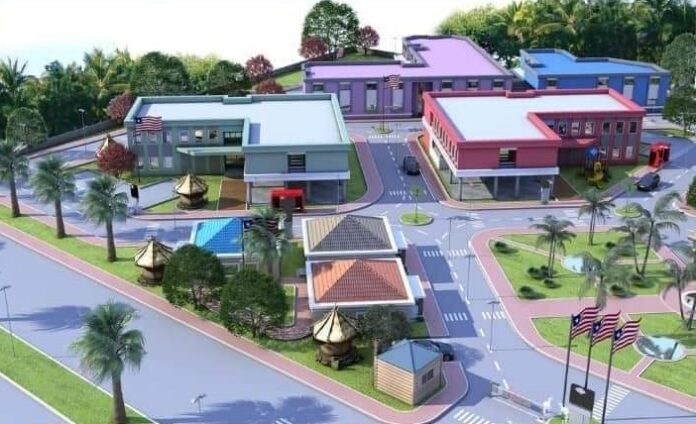MONROVIA – Lots of calamity befell Liberia in April. Let’s look at a few situations that occurred in April in Liberia. The April 14, 1979 rice riot, the April 12, 1980, bloody coup in which President William R. Tolbert Jr. was deposed in a bloody coup, leaving several dead.
The April 6, gun battle between opposing factions in central Monrovia also killed innocent people. These amongst several others make the month of April an infamous month in Liberia.
My reason for outlining these deadly events in our country’s history is the present situation that is obtaining under the watch of President George Weah-the noise of rice shortage which is causing a hake in the price of the commodity. The brutal crushing of rice protesters by Police in Monrovia in 1979 for rice price increase, is about to reply itself if care is not taken by the government. The Liberian leader George Weah was young though during those days, but he was not a baby. He knows exactly what went wrong.
But if President Weah has forgotten, Smart News Liberia reflects on the ordeal suffered by Monrovians on that fateful April 14, 1979 date.
The event is remembered here simply as “April 14.” On that day last month, at least 41 demonstrators protesting a proposed increase in the price of rice were shot and killed by army and police forces, triggering a wave of anarchy that resulted in property damage estimated at about $40 million and more than 400 people were injured.
New York Times reporter, Carey Winfrey in 1979 wrote: “April 14” has also triggered a period of national soul‐searching, debate and discussion. “It’s a free‐for‐all,” says Peter Naigow, the Deputy Minister of Information. “It really opened things up. You can say anything now.”
What most Liberians are saying is that the Government fatally miscalculated the depth of opposition to its proposed price increase, the docility of the people and the degree of their frustration and resentment.
He continued: “President William R. Tolbert sees things differently. The day after the shootings, he characterized the leaders of the demonstration as “wicked, evil and satanic men” who wanted “to bring chaos and disorder in the country with the eventual objective of overthrowing the Government.”
New York Times reported at the time that in an interview, President Tolbert reiterated his view that the rice issue was merely an alibi, put forth by men “whose principal idea is to change our system of government” and leaving the regime no alternative but to assert its authority. New York Times said President Tolbert for the first time, acknowledged that he had authorized the security forces to fire into the crowds.
The report quoted diplomatic sources in Liberia they viewed the demonstration as almost an inevitable consequence of the policies of a President with a limited tolerance for dissent and limited economic imagination. They say that power is too concentrated in the office of the President and that he is surrounded by too many ministers who are more interested in the perquisites of power than the welfare of the people.
They add that while he inherited a corrupt and inefficient bureaucracy when he came to office in 1971 and has worked to reduce it, corruption and inefficiency remain endemic.
Narratives in this article published 43 years ago, is synonymous to what’s obtained under the George Weah administration today. The CDC Government has at least two to three powerful ministers who usurp the functions of other cabinet colleagues and torpedo just everything in the country, under the pretext they are master of all.
The situation obtained with the rice debacle could cause a national catastrophe like in 1979.
Sandwiched by his Finance Minister Samuel Tweah and Minister of State Nathaniel McGill, President Weah’s visit to the Freeport of Monrovia recently was not friendly. It was not intended to find out from the importers what is going on. To suggest that the rice importers were attempting to blackmail the government was very threatening. Charging importers of the country’s staple food-a political commodity was unfriendly on the part of President Weah. He needed to have done sufficient soul-searching before going to the warehouses.
Rice has been a political commodity since April 14, 1979. And from the look of things, the Liberian leader no longer commands the popularity he once enjoys when he first took power. Things have changed, and if care is not taken, the weak Liberian political opposition could exploit the prevailing situation and use it to the disadvantage of the former soccer star.
As was said by one of the major rice importers during the President’s visit to the warehouses of importers, the increase in the price of the commodity was caused by the Weah Government. He narrated that high taxes and the failure of several scheduled meetings with government officials as being responsible for what is taking place.
In this case, we thought the Liberian President should have met the importers minus Tweah, Diggs and McGill. This would have helped him to hear a lot from the rice importers.
In the meantime, the government is saying nothing about the US$14 Million given to rice importers as subsidies. This was announced by the Minister of Finance Samuel Tweah at the end of last year.
Tweah, McGill and Commerce Minister Marwine Diggs who presided over the subsidies process have gone mute. What is going? Has President Weah also forgotten that he has approved US$14 Million which Tweah said the government already gave to the rice importers? Or was this a scam from President Weah and his government? Did the money short land? Who’s taking responsibility for this ugly situation in the Weah Government? Investigation continues.







